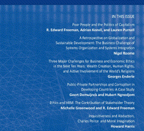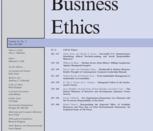Reconciling Values and Ethics in a Global SettingEthics refers to principles that define behavior as right or wrong. Who determines which actions are right and where did the rules come from? The definition of "right" is clearly a matter of perspective (Josephson Institute of Ethics, 2002). Differences in perspective due to the infinite diversity of people often lead to conflict between personal ethics and those adopted by groups. Individuals must find ways to reconcile diverse personal, organizational, and cultural ethics to succeed in a global setting.
Personal, Organizational, and Cultural PerspectivesDecision-making is the process of defining problems and choosing the best course of action by evaluating all possible alternatives. Adding ethics to the process brings moral sensitivity to the implications of those choices. Personal, organizational, and cultural ethics play a collective role in decision-making, so understanding the definition and relevancy of each perspective is paramount.
Personal Ethics and ValuesPersonal ethics and values form a moral code of conduct embedded into the behavior of every individual.
People are not born ethical, but have ethics thrust upon them starting at birth. Concepts of honesty, integrity, independence, trust, spirituality, caring, and courage are values imprinted into every individual from sources such as family, community, culture, education, and religion (Seneca College, 2001). Note that personal ethics and values are not always morally sound and universal, i.e., racism, sexism, and anti-Semitism.
Organizational Ethics and ValuesOrganizational ethics and values form a moral code of conduct in the same vein as personal ethics, but govern the behavior of each organization as a whole. Examples of organizational values are autonomy, conscientiousness, competitiveness, confidentiality, dedication, loyalty, professionalism, and teamwork (Seneca College, 2001). Without organizational control, individuals will naturally resort to following personal ethics and risk misrepresenting the organization. Adhering to organizational ethics is a collective...


